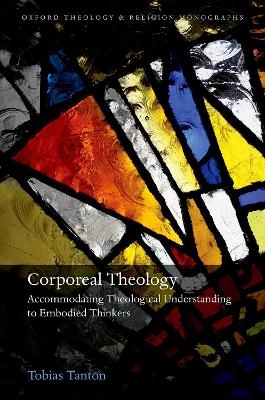
Corporeal Theology
Oxford University Press (Verlag)
978-0-19-288458-9 (ISBN)
Appropriating insights from empirical findings and theoretical constructs of 'embodied cognition', this study explores how theological understanding is accommodated to the bodily nature of human cognition. The principle of divine accommodation provides a theological framework for considering the human cognitive capacities that are accommodated by theological concepts and ecclesial practices. A rich portrait of the nature of human cognitive capacities is drawn from an emerging paradigm in cognitive science, embodied cognition, which proposes that cognition depends upon bodily sensorimotor systems to ground concepts and to draw upon environmental resources.
Embodied cognition's hypothesis that human concepts are grounded in sensorimotor states poses a theological quandary for God-concepts, since identifying God with sensorimotor content risks idolatry. The incarnation resolves this problem in theological epistemology by grounding God-concepts in bodily understanding, while avoiding idolatry. Thus, the incarnation represents an accommodation to human conceptual capacities.
Embodied cognition further hypothesises that cognition relies on sensorimotor engagement with the world rather than internal mental representations. Subsequently, in addition to the brain, bodily states and environmental artefacts 'scaffold' cognitive processes. A scaffolded view of cognition highlights the cognitive import of embodied religious practices, which choregraph the body and curate material culture. Tobias Tanton applies dozens of studies identifying mechanisms by which bodily or environmental factors influence cognition to the embodied and material dimensions Christian practices. On account of their inherent cognitive effects, practices are theorised to have intrinsic 'embodied' meanings alongside 'symbolic' ones established by conventions. Consequently, liturgy is seen as a bearer of theological content rather than merely an expression of it; a locus of religious experience; and a crucial determinate of religious and ethical formation. Again, the embodied nature of Christian liturgy is understood in terms of accommodation. Embodied cognition research helpfully illuminates the details of human embodiment to which theological understanding must be accommodated.
Tobias Tanton completed his graduate studies in theology at the University of Oxford as an Ertegun Scholar (MPhil) and later the Arthur Peacocke Scholar in Science and Theology (DPhil). He was subsequently a post-doctoral fellow in Science-Engage Theology at the University of Cambridge. He is currently Lecturer in Theology at Ripon College Cuddesdon, an associate member of the Faculty of Theology and Religion at the University of Oxford, and a fellow of the New Visions in Theological Anthropology: Engaging with the Behavioral Sciences project.
Part 1 - Embodied Cognition and its Application to Theology
1: Theological Prolegomenon: Accommodating Embodied Cognition
2: Embodied Cognition: Literature, History, and Concepts
Part 2 - Embodiment and Theological Concepts
3: The Body and Human Concepts
4: Grounding God? Embodying Theological Meaning
Part 3 - Embodied Religious Practices
5: Cognition Beyond the Brain
6: Embodied Cognition in Ecclesial Practices
7: Theological Practices: Homo Liturgicus
8: Theology for Humans
| Erscheinungsdatum | 07.03.2023 |
|---|---|
| Reihe/Serie | Oxford Theology and Religion Monographs |
| Verlagsort | Oxford |
| Sprache | englisch |
| Maße | 164 x 240 mm |
| Gewicht | 602 g |
| Themenwelt | Religion / Theologie ► Christentum ► Kirchengeschichte |
| ISBN-10 | 0-19-288458-1 / 0192884581 |
| ISBN-13 | 978-0-19-288458-9 / 9780192884589 |
| Zustand | Neuware |
| Haben Sie eine Frage zum Produkt? |
aus dem Bereich


